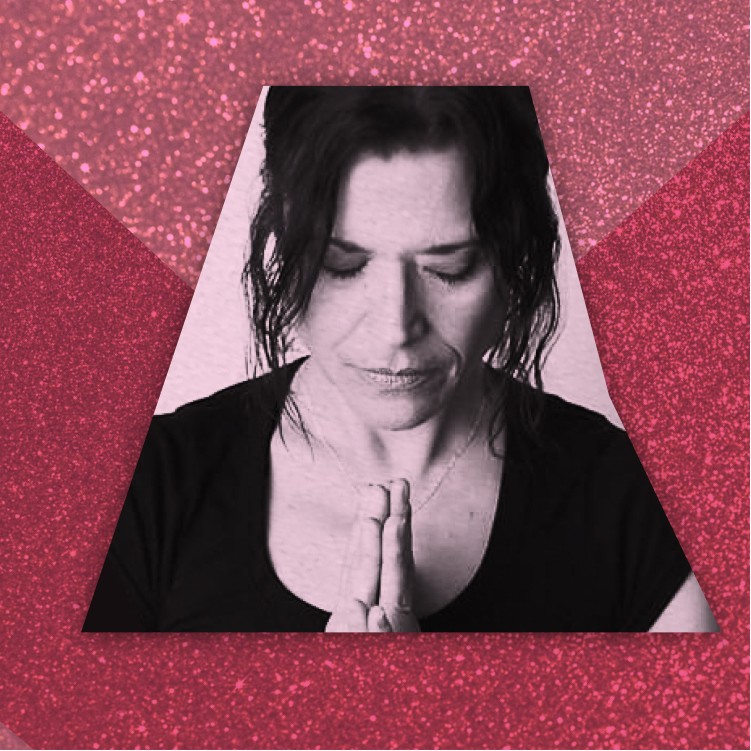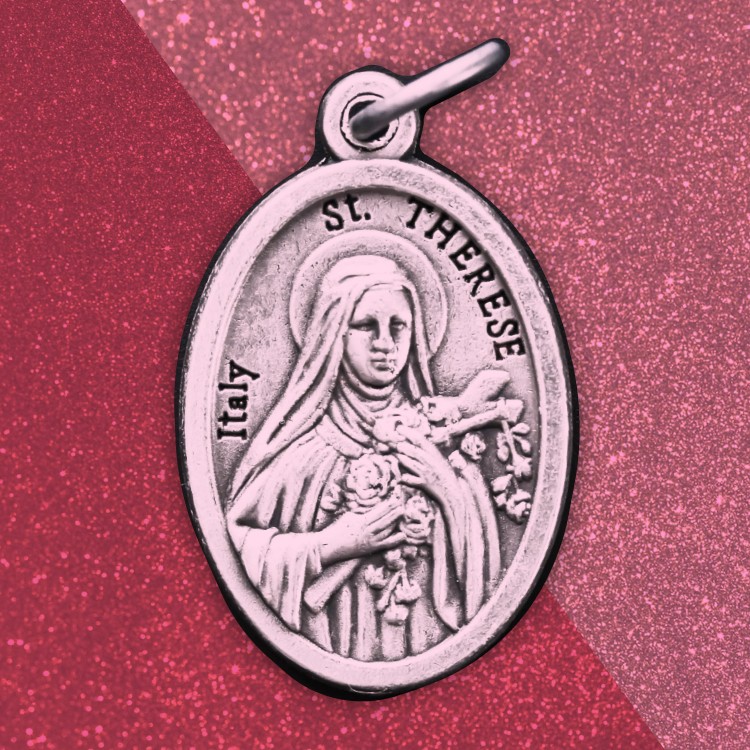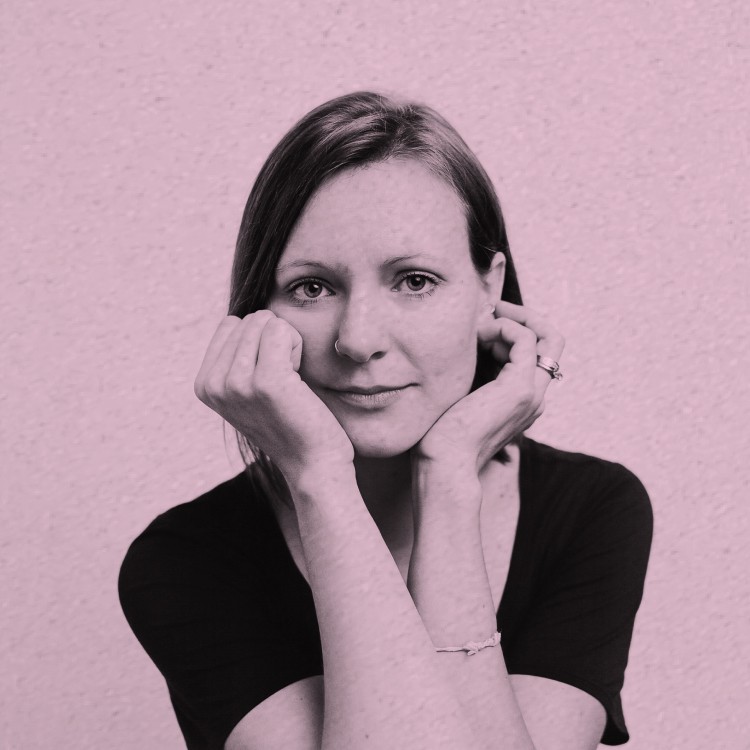Piece of the Pie
Alana starts college and thrives in her new community, which creates conflict with her old friends. Alana is rushed to the ER after a suicide scare.
Part 5 • 37:27
Dear Alana, is available free on all platforms and as an exclusive ad-free binge for Tenderfoot+ subscribers. To sign up or learn more, visit Tenderfootplus.com.
Transcript
The following episode contains references to suicide. If you or someone you know is in need of help, please contact the Suicide and Crisis Lifeline by dialing 988. Listener discretion is advised.
SIMON KENT FUNG: It’s 2013, school’s starting at the University of Colorado Boulder, and everything’s happening on the Hill: new people, new classes, parties, the clubs fair. There’s frisbee on Farrand Field, the CU Buffaloes football season is just getting started, and there are mounds of pizza boxes and beer cups piling up outside the frat houses.
CU Boulder wasn’t Alana’s first choice. In her senior year of high school she begged her mother to let her go to Wyoming Catholic College, a traditional-leaning school with an outdoor leadership program. Fr. Dave even wrote her her recommendation letter. But at the last minute Alana decided to stay local. She was already really involved with St. Tom’s, which happened to be the center for all things Catholic at CU Boulder. And St. Tom’s was in full bloom. They host a welcome barbecue for all the new students, and there are all these really nice, good-looking college grads hanging out and getting to know all the freshmen.
Everyone’s talking about this conference that’s happening in the winter called SEEK. Alana signs up.
SEEK MC: Welcome to SEEK!
SIMON KENT FUNG: Picture 10,000 Catholic students from across the country, convening in Nashville for a week.
SEEK SPEAKER: We got people from all over the Midwest, from places like Nebraska and Colorado!
SIMON KENT FUNG: There are giant stadium Masses, men’s and women’s sessions…
SEEK SPEAKER 2: Women, you have to have a posse of women. Women need a posse. Why? Because women hate each other.
SEEK SPEAKER 3: As a guy, you want the Lord and you want the lady. So I wanna lay a foundation of Top Ten Tips You Can Do to Date your Soulmate.
SIMON KENT FUNG: …incredible music, dozens of young priests ready to hear your confession, nuns walking around. A rousing call to change the world.
SEEK SPEAKER 4: Would you please consider, the world is waiting for you, is waiting for you to live in divine intimacy, authentic friendship, and this ability to live in the Little Way.
SIMON KENT FUNG: And the talks…
SEEK SPEAKER 5: I began a career in fashion and in modeling. I was on America's Next Top Model.
SIMON KENT FUNG: Stories of wandering through the empty promises of modern culture, into a life of real fulfillment.
SEEK SPEAKER 5: And yet, I was completely not at peace. I wanted more. And the only person who could give me more, was Christ.
SIMON KENT FUNG: But the highlight of the week is an evening of worship music and prayer. The priest, in his gold vestments, burns incense around the altar. And the worship team builds up the emotion.
And in this crowd of scared and excited young people all kneeling, eyes closed, tonight offers a glimpse of what life could be like with thousands of others who believe what you believe, who’ve found the answers to the confusion and uncertainty about the future that you’ve secretly felt. And you begin to wonder, if maybe, Heaven feels something like this.
From Tenderfoot TV, I’m Simon Kent Fung. This is Dear Alana.
Part Five. Piece of the Pie.
SOPHIA: I answer the door. I should’ve probably put two and two together. But I knew that she was in trouble and it wasn't good. And I remember she left and I was crying, crying, and crying. And was just really confused.
SIMON KENT FUNG: When the police and nun first arrived at their door, Alana’s younger sister Sophia had no clue why they were there. She didn’t know that Alana had told a friend about her plans to die by suicide. But how did she get here? These plans didn’t come from nowhere. What else was going on while she was in college, besides her therapy?
I decided to extend my trip in Boulder. Before I can go forward in this story, I have to go back to her college years, those pivotal years that lead up to this breaking point. Today, I’m walking through Alana’s old neighborhood by the CU Boulder campus. I want to see for myself the places where Alana would’ve spent most of her time.
On this weekday, students are recovering from last night’s party, walking home from their frat houses.
My introverted self couldn’t imagine living here.
And then I see it: St. Tom’s. The church that Alana would sneak out to, where she first met Fr. Dave. Where she found her therapist. And when she went to college, this church became her home away from home.
I walk a little further and find myself in front of a building that says “St. Thomas Aquinas Catholic Center.” There are students coming in and out of the building, one of whom holds the door for me. And as I walk in, I’m expecting to see some sort of worship space. But instead, I enter what looks like a full-fledged coffee shop.
It’s got a kind of Target-decor with a wood-paneled accent wall and geometric wallpaper. I look up at a framed hand-lettered quote that says: “All I need today is a little bit of coffee, and a whole lot of Jesus.”
So how did this all come to be? This religious haven on a secular campus?
The man behind all of this, who’s been leading St. Tom’s for the past twelve years, is a priest named Fr. Peter Mussett. He’s in his mid-40s, which is young for a Catholic priest. He’s affable and enthusiastic. And you can hear the joy in his voice when he talks about his work, like in this interview with the campus newspaper.
FR. PETER: I love being a priest in Boulder like I cannot tell you. I talked to somebody, and they’re like, “Oh you’re Catholic” and they’re like “Oh, my cathedral is the woods.” And you know what’s great? Wonderful, well then talk to me about how you experience God within the woods.” Like there’s all these really cool starting places that you can have within Boulder.
SIMON KENT FUNG: You get the picture—an outgoing guy who seems engaged with students. Joyce remembers the first time she saw Fr. Peter, when Alana brought her to Mass at St. Tom’s.
JOYCE: I'd never seen a priest look like him. Sometimes he'd have a man bun, sometimes he'd just have curly, curly hair, long, Birkenstocks. He just was cool.
SIMON KENT FUNG: In the articles I read, that cool, man-bun look, earned Fr. Peter the nickname “the Hipster Priest.” But it wasn’t just his appearance that was appealing.
JOYCE: When I first heard him give a homily, I couldn’t believe it. Like, he was so funny. And he made the homily understandable and then he brought humor into it. So I loved it. And I had friends come and hear him, like, I was just like, this is the best.
SIMON KENT FUNG: In so many ways, Fr. Peter is exactly the kind of priest I dreamt of becoming. Young, dynamic, orthodox. He’s appointed as Administrator for St. Tom’s in 2011, when Alana is still in high school, just as Fr. Dave (Alana’s spiritual director) gets reassigned from St. Tom’s. Joyce remembers wondering about the reassignment.
JOYCE: And that’s when I went and met with Fr. Peter ‘cause I just trusted him so many times. I met with him and I was like, “Do I have anything to worry about? Why is he made to leave?”
SIMON KENT FUNG: She recalls Fr. Peter reassuring her that Fr. Dave’s leaving is not a big deal. How they were both roommates in seminary and she had nothing to worry about, and that Fr. Dave was leaving for other personal reasons.
JOYCE: And I was like, are they getting him any help? And he said, “No, he’s just gonna go to another parish ‘cause the parishioners here got upset with some things.” And I was concerned but I trusted Fr. Peter and then I thought, thank God he’s leaving.
SIMON KENT FUNG: With Fr. Dave out of the picture, and Fr. Peter, the hipster priest, as the new sheriff in town, Joyce was relieved. She felt like Alana was now in good hands. What she didn’t know was that Alana had a different idea of what would be good for her.
Back at the University of Colorado, Alana is thriving. She’s joined the collegiate Frisbee team, and she makes a ton of new friends at St. Tom’s. She becomes close with Fr. Peter (who she calls “FP”), and kinda dives into it all at the Catholic Center: she’s volunteering at the St. Tom’s adoration chapel, becoming a leader for their fall retreat, and organizing students every week to give sandwiches out to the homeless. But what she seems most excited about is moving off-campus into an apartment with four other Catholic girls, where they do weekly rosaries and Bible studies together.
ALANA: “Freshman year: Zeal! Martyrdom! Sainthood! Here are all the things I’m grateful for: the missionary disciples, talking to Laura, Carissa, sending out the emails, Mass this morning, signing the lease. Goal: make disciples: win, build, send through missionary service to the homeless.”
SIMON KENT FUNG: Alana’s clearly in her element.
I feel like I’m starting to get a pretty good picture of what her college experience was like.
St. Tom’s seems to provide a kind of alternative to the mainstream activities found at a party school like CU. It’s like, instead of going to the bar crawl on Friday, let’s hang out at the St. Tom’s coffee shop, and talk about our walk with God. I would’ve totally signed up.
Up until college, my faith was very private and devotional. But I soon stumbled into a more intellectual side of Catholicism. A side that equipped me with debate-level knowledge so that I could defend the Church and win arguments. I discovered an entire industry of books and conferences dedicated to this.
Alana gets a good dose of this at the Nashville conference you heard at the beginning—where Fr. Peter brings a contingent of 90 CU students. After a reverent stadium Mass, the music dies down and everyone settles in. The speaker takes the stage.
CHRIS STEFANICK: The worldview we’re going to attack today is “relativism.” Say that word with me.
SIMON KENT FUNG: Relativism. A philosophical concept that most of the students have probably never heard of.
CHRIS STEFANICK: It’s the idea that there is no truth. Truth is relative to what each person believes. So it does away with this idea that there’s objective truth.
SIMON KENT FUNG: You can think of relativism as license to do whatever you want.
CHRIS STEFANICK: Now most people aren’t relativist when it comes to things that are scientifically verifiable. No one’s gonna say, “Two plus two is five for me! That’s my truth, don’t impose your four on my five! You close-minded Catholics!”
SIMON KENT FUNG: He’s ripping on his critics.
CHRIS STEFANICK: But we’re relativists when it comes to everything else: How do I make a moral decision? Definitions of marriage. Anything like that. We think it’s stuff that people make up for themselves.
“There is no such thing as truth.” Hitler said that.
SIMON KENT FUNG: Even Hitler was a relativist. That puts it into perspective.
CHRIS STEFANICK: See, if your God lets you do whatever you want, your God is you. If there’s no objective truth out there about morals, where does your moral compass point? It points to the all powerful question: What feels right?
SIMON KENT FUNG: I remember hearing talks like this, and feeling like I couldn’t trust myself. Only God was objective. And it was my duty to defend him against a wider culture that was dead set on attacking us for our beliefs.
ARCHBISHOP AQUILA: We know there is persecution that is occurring against Christians.
JENNIFER FULWILER: Surrounded by this culture that has so much craziness in it.
EDWARD SRI: How do we live in a culture like this? A culture of moral relativism.
SIMON KENT FUNG: With the culture against us, what were we to do? The answer was to fight back with objective truth. And the way to discover that objective truth is through the superpowers of the Church, which Catholics believe has a direct and historical line to God. Kinda giving us the cheat codes to the video game of life. And it seems to have worked.
Some of the most famous scientific discoveries, like the Big Bang, were discovered by Catholic priests. The Universal Declaration of Human Rights was kickstarted by a Catholic philosopher. And you know who else is Catholic? Six of the nine U.S. supreme court justices.
CHRIS STEFANICK: …we started the hospital system, started the university system maybe, you know, largest social services provider on the planet?
SIMON KENT FUNG: Heck, even Stephen Colbert teaches Catholic Sunday school. God must be backing this, right? So you can understand how drawn I was to this Church, and why young college students like Alana would also be captivated.
The talk ends with a call to be a saint.
CHRIS STEFANICK: You see, you becoming holy is not just about you. We live in a world that’s forgotten its way. That’s forgotten that life has any purpose. And the answer that God sends is you.
SIMON KENT FUNG: I picture Alana hearing this and feeling like he’s talking directly to her. She too wanted to be holy and perfectly united with God, a saint, to save those around her. And by her sophomore year, Alana was well known throughout the St. Tom’s community. With her quiet devotion and commitment to the homeless, it was obvious she was on a fast track to becoming a saint. Even younger students had heard of Alana Chen’s religious reputation before meeting her. But what really got everyone talking was her friendship with a boy named Micah.
Here’s Alana describing him on her timeline.
ALANA: “Micah…met at St. Tom's, first guy to be close to…gentlemen, adventurous, sensitive, joyful, vulnerable, healthy boundaries, soul mate... partner in sainthood.”
SIMON KENT FUNG: Micah’s tall, dark and handsome. He goes with Alana to visit the homeless under the bridge on Sundays. They both love hiking the Flatirons by the campus together. And what makes Micah special is that, like Alana wanting to become a nun, Micah wants to become a priest. This gets everyone talking, and the are-they-aren’t-they speculation of these two good-looking saints-in-the-making makes them a kind of Catholic power couple.
But Micah and Alana are both figuring out their vocations—how God is calling them to serve the Church. Which means picking from one of three options: marriage, becoming a priest or nun, or staying single.
ALANA: “In the fall, the Dominican sisters visited our campus. It's hard to describe, but after hearing their vocation stories my heart was burning. The sister said even though she wanted to be married and have children it was okay, that made her vocation even more pure. I asked Jesus to make my vocation pure, so I asked for the desire to be married & have kids. In the next couple of weeks, my best male friend asked me on a date. We both liked each other, and even though I was discerning to be a sister (and he a priest), I said yes.”
SIMON KENT FUNG: Alana’s older sister Carissa remembers that first date.
CARISSA: It was like a big deal at the Chen house that she was going on this date. And he picked her up and like we had all met him. He’s super nice. He's handsome.
SIMON KENT FUNG: They finished their date that evening at the chapel at St. Tom’s, praying together.
ALANA: “I liked him a lot. He was very holy. This increased my desire for marriage but also my desire to be a sister. As we dated, I constantly felt torn. I asked many people for advice, but no one…would tell me what to do. Then I understood that Jesus was leaving me the free choice.”
SIMON KENT FUNG: Alana’s facing the dilemma of whether to become a nun or to marry. This might seem like she’s getting ahead of herself with Micah—like, they’re only going on dates, why is she thinking about marriage? But for Catholics, when it comes to discerning your vocation, it’s really important to get it right. Picking the wrong one is like missing out on what God wanted you to be. So the stakes are high.
I remember the many journals I wrote, asking God to help me discover my vocation. There was nothing more I wanted than to follow God’s will perfectly. And everything in me was pointing to the priesthood. For me, marriage wasn’t something that had ever crossed my mind. But the thought of becoming a priest, not having a family of my own, and serving God’s family full-time, filled me with a deep sense of peace and joy. Fr. William, my spiritual director, told me that these were all signs of a vocation to the priesthood. Not every young Catholic man feels this way.
Alana takes her vocational discernment very seriously. She dates Micah, and also attends retreats with Mother Teresa’s nuns in New York, to see which one speaks to her more.
ALANA: “Please answer me, [God]! Hear my cry when I call to you. Father told me to not even think about my vocation until the last day [of my retreat with the sisters]. Already it’s all I think about. Should I listen to Fr. Dave my spiritual director or should I look and ask you in prayer about my vocation?”
SIMON KENT FUNG: It’s been nearly three years since Fr. Dave has left St. Tom’s, so why is Alana still referring to him as her spiritual director? What no one knows is that Alana has been in touch with Fr. Dave, behind her mother’s back, this entire time.
Alana’s mother had forbidden her from meeting with Fr. Dave unsupervised when she was a young teen. But by college, it’s clear that Alana has been ignoring her mom.
JOYCE: “Who are you on the phone with, Alana?” And then, she’d finally tell me. She wouldn’t tell me right away. And then I was really mad. ‘Cause, you’re not supposed to be talking to him anymore. And she’s like, “It’s on the phone! It’s not in person.” She’d get upset.
SIMON KENT FUNG: While other teenagers rebel by drinking and breaking curfew, Alana’s form of rebellion is talking to her priest on the phone.
I managed to get a hold of the phone they’re talking about. Her family was able to unlock it. But Joyce has never been able to look through it in any depth. It’s too painful. I ask her if she would be okay if I did.
“Please guard it with your life,” she says.
There’s a lot on the phone, and it takes me nearly two weeks to comb through it. I discover that Alana and Fr. Dave are communicating even more than what Joyce was aware of, especially by text. They text almost weekly, sometimes several times a week. And as I read through their conversations, I discover more layers to their relationship: They joke about their Myers Briggs personality types (Alana’s an INFP), and Fr. Dave shares how hard it’s been with all of his reassignments. He sends her selfies, shares the occasional food pic, and they schedule times to talk on the phone. He asks her how bad her temptations are on a scale of 1 to 10. She replies, “8.” Then, at the end of her junior year at CU, Alana texts him: “Happy Father’s Day! You are a good father, I love you :)” He replies: “Thank you! I love you too. I was looking for you on FB since I joined. You’re very smart for not being on it.”
Fr. Dave and Alana’s text messages look more like two friends talking, rather than an older man, and a young woman seeking spiritual direction. While there are no hard and fast rules to spiritual direction, I’m not sure where the line is. And even though I was close with my spiritual director, it never looked quite like this.
With a new community of religious peers—people like Micah and others at St. Tom’s—who are as invested in their faith as Alana is, Alana tries hard to keep up with her old friends. But mixing friend groups would prove to be complicated.
Here’s Nhi again, the Frisbee captain.
NHI: One of the more defining things that year was my friend Kelsey, who was dating this other girl at the time. There was a holiday party that Alana had invited myself, Kelsey and Kelsey's partner to. It happened to be at Peter Musset’s house.
SIMON KENT FUNG: Peter Musset is Fr. Peter, you know, the hipster priest. After the party, Nhi picked up on something. Kelsey and their partner were really uncomfortable.
NHI: At that point I had realized like, maybe it's best to not be in the same spaces as like Alana’s church friends, because of the way that like, you know, Kelsey feels uncomfortable and Kelsey feels judged. And at that point, I think neither of us had known that Alana was gay, so I really don’t know if Alana brought the three of us there to just like make those spaces a little bit safer. I’d like to think so, I’d like to think that Alana wanted us there.
SIMON KENT FUNG: I asked Joy, Alana’s best friend since kindergarten, what she remembers about Alana’s new church friends.
JOY: So I remember one time this girl said to me like, “Yeah, yeah, yeah, it's great that you go to church, you know, but it's just kinda like, you have one piece of the pie as a Protestant. And Catholics, we have the whole pie.” And I just, I like knew I was like that's, no! So she never did.
SIMON: Did she ever try to convert you?
JOY: No, she she did not. People that she was friends with did.
SIMON KENT FUNG: While Alana never tried to convert Joy or any of her old friends for that matter, her new friends weren’t making a great impression on her old friends, or her mom. Here’s Joyce, recalling a time when Alana had her church friends over.
JOYCE: There was that one time when I was in my house. And I overheard them talking about abortion should be murder one. And I remember going in the dining room and I didn't want to embarrass Alana or anything, but I was like, “You really think that?” Like, I was like, “Murder one?” I said, “Do you know how people, some people suffer after they have an abortion for years, they feel badly especially if they can't have children. It's not an easy thing, but murder one?”
SIMON KENT FUNG: First-degree murder, punishable in some states by death. Alana’s new friends become yet another source of conflict between her and her mom.
JOYCE: I remember one day dropping her off to that apartment complex and we had a discussion and it turned into a debate and she started crying, and told me, “You think I’m weird.” And I don’t know if it was about a Republican/Democrat thing, or again with the abortion. And she was crying and she ran out of my car. And I remember and I thought, I can’t, I can’t lose my daughter. I have to stop.
SIMON KENT FUNG: Joyce rationalizes her decision to back off.
JOYCE: She loves these friends. And she’s good. Look what she does. Like, she’s so good. She helps the poor, the homeless. She loves God. I didn’t know, though. This other thing. I didn’t know.
SIMON KENT FUNG: This other thing. The secret.
ALANA: “Sunday: went to practice—should not have gone… need to let go of Ultimate. So many desires and temptations. It made me regret [choosing this college].
“Sophomore year. COR leader. Lonely. Unsure. Burning out. Overworked. Dishonest with God. Ashamed. Struggling with same-sex attraction.”
SIMON KENT FUNG: Alana’s clearly having a hard time with her SSA. In an email she writes to Fr. Dave during her sophomore year, she tries to distance herself from these temptations. Remember, up until now, she hasn’t told her friends or her family about any of this.
ALANA: “This week has been filled with grace! But it was also kinda rough. Two of my girl friends from high school Ultimate recently came out and are in a relationship together. Then today I am told that another girl, a friend at St. Tom's, is struggling with homosexuality. Although she remains chaste she deals with the loneliness by drinking and partying and she’s growing further and further away from God.”
SIMON KENT FUNG: And in the midst of this, she journals about her relationship with Micah.
ALANA: “One day I was reading a book about Saint Thérèse, but I was so distracted by the situation. I was not paying attention to the words. I stopped reading and began to pray. Lord, if you are giving me the free choice, then searching the depths of my soul I cannot date Micah anymore. I choose to give my heart to you. I ended my prayer and began to read where I had left off. The words read: ‘Here on earth, love proves itself by free choice. Jesus wants to be chosen. He wants to be preferred.’ Then I knew I had made the right choice. We stopped dating. He was fine since he wanted to be a priest.”
SIMON: It’s so funny, the parallels, you know? Like I always thought that…I tried dating girls too, you know?
JOYCE: You did?
SIMON: I always felt like there was moments where I was like, but the vocation to the priesthood is what my calling is. And so I can't. And so I kind of, I kind of tricked myself into being like, I'm I'm so I'm choosing this other thing. That's, you know, that's my calling and can't date those girls, but you know, really I wasn't into it.
JOYCE: It’s torturous.
SIMON KENT FUNG: Interspersed between scholarship applications and writing assignments, are a bunch of her notes titled “Healthy Sexuality.” It’s a kind of summary of the Catholic teaching on sex.
ALANA: “Healthy Sexuality. Sexuality affects all aspects of the human person in the unity of his body and soul. Sex is designed for both union and procreation. Sex as God intended is for one man and one wife in a committed life-long marriage relationship.”
“Masturbation turns this energy in on oneself. Masturbation is a symbol of selfishness and loneliness. Masturbation, fornication, adultery, contraception…do not image God's free, total, faithful and fruitful love.”
SIMON KENT FUNG: For a lot of people, these restrictions seem out of date. But for many Catholics, the Church’s job is precisely to not change. Because God’s truth doesn’t change. He’s not a relativist, remember?—as we learned from the conference speaker.
By the time I get to Alana’s notes on homosexuality, it’s not surprising what I find.
ALANA: “Persons with same-sex attraction who act out sexually can never become ‘one body’ [with their partner] since their sexual organs cannot be united and there is no possibility of creating another person through a ‘one flesh union.’ This could only amount to mutual masturbation. SSA is disordered, not according to God’s plan.”
SIMON KENT FUNG: For young people trying desperately to follow God’s plan, this characterization of homosexual relationships as physiologically incompatible with this plan, is impossible to ignore. It burrows deep into our souls, fueling the belief that how we experience relationship is from God’s perspective, broken. And so we hide these feelings behind a red line we must never cross. Because we can’t afford to lose God.
We return to the speaker stage. This is from another Catholic conference Alana attended, organized by the Franciscan University of Steubenville.
JASON EVERT: When people hear this, they think, “Well, where does this leave me, though? Like I have these attractions, like what does this mean? Like, I can never have a family? Like, I can never get married?” Do you trust God’s love for you, to the extent that you will abandon your own will in order to follow Him, or do you trust your own will for yourself more than you trust in God, and you’d rather abandon Him than your own will?
SIMON KENT FUNG: Alana takes all of this to heart. It’s as if she has to do everything possible to prove that she’s not abandoning God.
ALANA: “My Jesus…There is a LOT to do. Marian Consecration started yesterday so here comes the renunciation of the world. 5-6 scholarship essays to finish by Thursday, 5 page paper due soon, Buffalo Awakening, need to make name tags, buy snacks, decorate boxes. I need to continue fundraising. Lord, I need your help!”
“Confession: consent to impure thoughts and same-sex attraction. I let my weakness scare me and forget to trust in God for protection. Always neglecting homework, always eating too much, always picking at skin. Always thinking about how others will think of me. Not sleeping enough—fall asleep praying. I have haunting…impure…dreams. They lead to despair and fear.”
“JUNIOR YEAR. Moved back home to save money. Overworked. Still [two jobs]. Not doing well in school. Compulsive masturbation. Attracted to every woman I lay eyes on. Shame. My life is in shambles. I JUST WANT TO BE CLEAN—FREE & PURE!”
SIMON KENT FUNG: Midway through her Junior year, Alana tears her ACL during a frisbee tournament and needs surgery. It’s as if her body is giving out under all the pressure. She moves back home to recover.
JOYCE: When she got home, they had told me to get an ice machine, you should put ice around the clock. So I decided, I’m gonna stay on the couch with her. And we had a big ice bucket thing on the porch, so I could refill the ice machine. And I just stayed up all night with her. I probably dozed off but she didn’t seem good.
SIMON KENT FUNG: Alana seems really down. Recovering from surgery is no fun. So her friends stop by to cheer her up.
JOYCE: I remember her friends kept visiting. Micah came, and he cleaned all, like he was cleaning and bringing her food, and I remember thinking, “Oh he’s so nice.” And Katie, her friend from Frisbee came, and Joy, and everybody would visit her.
SIMON KENT FUNG: But one evening, while her mother is with her on the couch, Alana shares what’s really been going on.
JOYCE: I just kept sleeping on the couch with her and then she told me she was attracted to women. And she told the priest, and she told me you know about masturbation was a mortal sin, and it was lifted for all those years, and it was back, and that school was round the clock with the environmental design, and then she couldn’t keep it up with the church hours, and the homeless hours and, she was like falling apart.
SIMON KENT FUNG: The stress from everything was too much, and Alana couldn’t keep it in anymore. Joyce isn’t sure what to make of any of it. This completely blindsides her.
JOYCE: You know and I was just shocked. Like, I was, you know, I was just in shock.
SIMON KENT FUNG: Joyce describes how horrified she felt that Alana had been carrying this secret all on her own. And she tries her best to comfort her daughter. But as much as Alana seems to be opening up by finally coming out to her mom, she’s not sharing the whole picture. She doesn’t tell her about what she’s been learning in therapy.
From this next passage I find, it looks like the wedge between Alana and her parents that began with Fr. Dave had been continuing, long after he’d left.
ALANA: Fr. Peter told me that I should not identify by my temptations, for the cause is much deeper than I could imagine. The cause was the doubt and isolation. From a young age I did not know God. From a young age I was isolated because of my sexual addiction. I felt so much shame and hopelessness. Because of my parents, I could not relate to them or be known by them. They were too strong and I was weak.
SIMON KENT FUNG: The hipster priest, the one who, ironically, Joyce trusted, was the person who’d been reinforcing these parental theories. And as I look at Alana’s therapy dates with Kate, I realize that it was under Fr. Peter’s leadership that St. Tom’s was referring this kind of therapy to the students.
The stress leading up to Alana’s ACL tear would be compounded with another year of therapy where Alana tries desperately to fix herself in order to become a nun or a wife. To get to the root of her mother-wounds that she’s told made her gay.
By now, it’s becoming clear that this intoxicating sense of belonging to a community with shared black and white values, while comforting, might’ve drove Alana and me deeper into a profound shame, a shame that’s all over Alana’s journals. A shame eating away at her sense of self and mental health. A shame that no one else could see.
Perhaps it's this shame, that led to Alana's suicide scare in her senior year at CU. As her younger sister Sophia explained, a police officer and a nun came to the Chen home, and rushed Alana to the hospital. Sophia was left confused and crying after learning that Alana had threatened to kill herself. When Joyce finds out, she races to the ER.
JOYCE: I get there to the emergency room. There’s a couple of nuns. And then there’s Fr. Peter on his knees praying over Alana. She’s crying, and I’m just stunned. I’m like, “What the hell is going on here?”
[Theme: “I Will Follow You,” by Toulouse]
SIMON KENT FUNG: Next time, on Dear Alana.
Next time, on Dear Alana.
JOY: So she said, "When I think of home, I realize I have very few people left. I'm so grateful to have you, and that you never gave up on me. I'm finally learning not to give up on myself."
SIMON KENT FUNG: How Alana’s struggle is interrupted by a friendship that develops into something more.
Dear Alana was created, hosted, and written by me, Simon Kent Fung, and is a production of Tenderfoot TV in association with Aslept Audio and the Center for Independent Documentary. It was produced by Laurie Polisky, who also composed the music. Executive Producers are myself, Donald Albright and Payne Lindsey. Our Supervising Producer is Tracy Leeds Kaplan. Additional music by Makeup and Vanity Set. Sales and distribution by iHeart Media. Our voice actor is Alana Rabor. And our credit song, “I Will Follow You,” is by Toulouse.
Show notes and resources can be found on our website dearalana.com. If you enjoyed this episode, please take time to follow the show, rate, and review.













